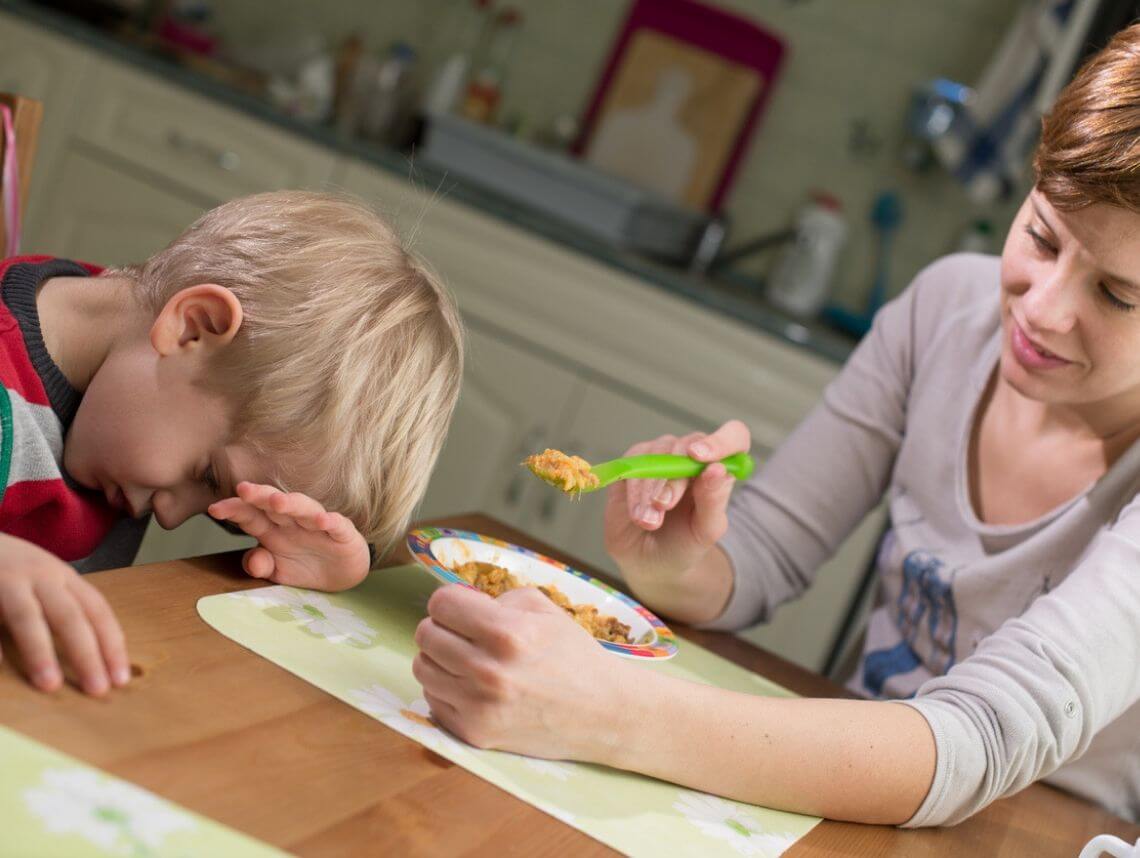Any parent with a picky eater knows how challenging mealtime can be. What if the cause isn’t related to the type of food you’re serving, but your child’s ability to swallow and intake food? If your child experiences coughing, choking, lengthy feeding times (greater than 30 minutes), or other related problems during meals, they may be experiencing pediatric dysphagia.
What is Pediatric Dysphagia?
Pediatric dysphagia is any disruption to a child’s swallow sequence that results in compromised safety, efficiency, or nutritional intake. It can make eating meals and drinking liquids challenging for both you and—most importantly—your child. Dysphagia doesn’t only impact mealtimes. It can also lead to aspiration – which is when food or liquid enters the lungs. Aspiration can lead to more serious problems if left unaddressed.
Pediatric Dysphagia Causes
Any conditions that cause structural problems in the mouth, throat, or esophagus, or weaken or damage the muscles or nerves used for feeding can cause pediatric dysphagia. Some related disorders include:
- Brain injury
- Congenital disabilities
- Cleft palate
- Cerebral palsy
- Gastroesophageal disorders, like reflux
- Heart or lung conditions
- And more
Signs and Symptoms of Pediatric Dysphagia
If your child is suffering from pediatric dysphagia, they may experience any number of the following symptoms:
- Problems coordinating sucking, swallowing, and breathing (like drinking through a straw)
- Coughing
- Drooling
- Being hoarse
- Unexpected weight loss
- Bringing food back up
- Choking
- Gagging
- Trouble chewing
- The sensation of food feeling stuck in their throat
- Lengthy feeding teams (greater than 30 minutes)
- Limited intake of food or liquids
- Refusal of previously accepted food or liquids
- Change of breathing rate while eating
Exploring Diagnosis of Pediatric Dysphagia
If your child experiences problems when eating, drinking, or swallowing, you should talk to your primary care doctor. Based on the severity of the condition, your pediatrician may refer you to a specialist for feeding problems, a speech-language pathologist, an occupational therapist, or other specialty care doctors. These specialty doctors might conduct the following tests:
- Clinical oral-motor and feeding evaluation
- Videofluoroscopic swallowing (VSS) study
- Fiberoptic endoscopic evaluation of the swallow (FEES) study
- X-ray with a contrast material (barium x-ray)
- Esophageal muscle test
- Endoscopy
Pediatric Dysphagia Treatment
How to treat your child depends on the severity of their pediatric dysphagia. A speech-language pathologist will evaluate your child’s dysphagia and suggest or provide therapy to:
- Develop strength, range of motion, and coordination of the lips, tongue, cheeks, and jaw muscles for eating and drinking
- Minimize oral sensitivity or oral aversions
- Decrease behavioral resistance during meals
- Lower the risk of aspiration
Your child’s speech-language pathologist might suggest changes in the types or textures of food your child eats or the type of utensils used. They may also create strategies to help your child drink or eat more easily.
How Can You Help Your Child?
Not being able to eat properly or struggling to breathe because of aspirations can be scary for your child. That’s why it’s important that you recognize the signs early and get your child the professional expertise they need to overcome their meal obstacle. To help make mealtime a better time for your child, start by implementing exercises, activities, and other recommendations suggested by your child’s speech-language pathologist. Make sure that you include your child in family mealtime and try to keep the experience a positive one.
Contact Care Options for Kids for Pediatric Home Care Services
Caring for a child with special needs like pediatric dysphagia can be challenging. That’s why our team of professionals at Care Options for Kids are here to help. Our home care services provide clinic-level support in the comfort of your child’s home.
We refer loving and competent caregivers to provide customized care for families – from a few hours a day to around-the-clock supervision. Contact us directly to speak with a home health care professional or request a free in-home assessment. Together we can determine the best plan of action to keep loved ones happy and healthy.
If you are considering pediatric home health care services, contact the caring staff at Care Options for Kids. Call today (888) 592-5855.






